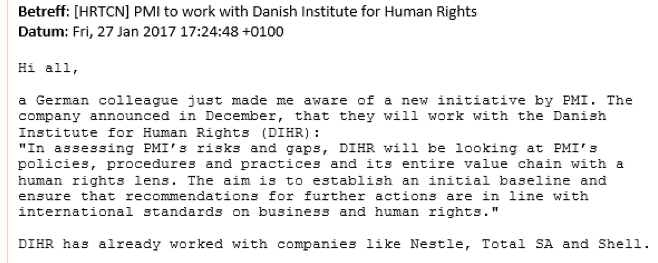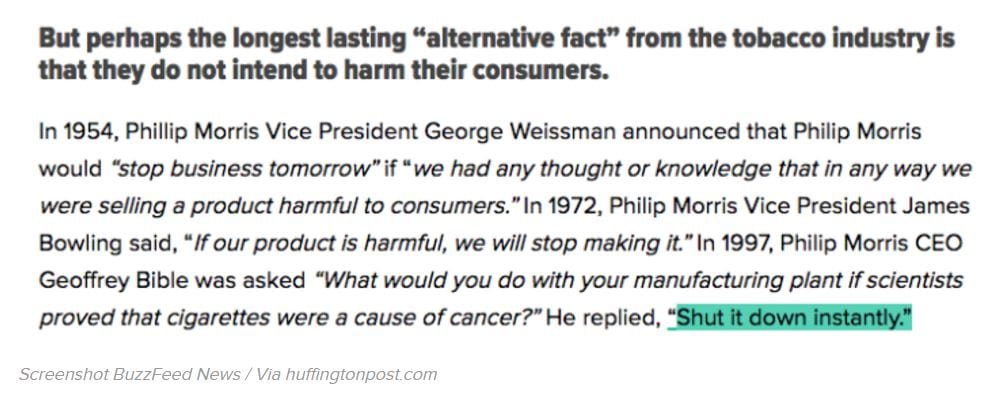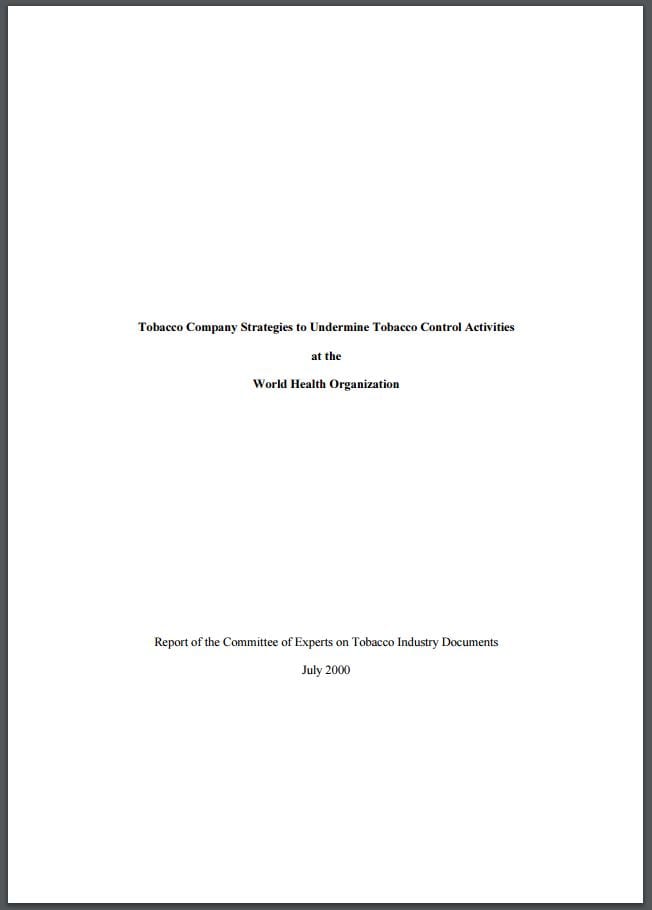Re-printed as an English translation with permission from Buzzfeed Germany, original article in German here.
Stop producing or marketing tobacco! This is what an Institute for Human Rights has recommended to Philip Morris International, the manufacturer of Marlboro.
Posted by Buzzfeed on May 22, 2017, 4:51 pm
Chief Editor, BuzzFeed Germany
Philip Morris International owns brands such as Marlboro, L & M or Gauloises. The Group has exactly the image one would expect from the largest tobacco company in the world. That is probably why Philip Morris asked for a report from the state-funded Danish Institute for Human Rights last summer.
How well does Philip Morris deal with human rights around the world? How can the Group improve? The result is probably the opposite of what Philip Morris had hoped for.
The Danes write that the group can “no longer produce or market tobacco”, if it wants to comply with the rules of the United Nations for human rights and business.
90,000 euros for a human rights report
Philip Morris could hardly have obtained a stronger judgement. At first, everything is going according to the plan for Philip Morris. The Danish Institute agrees to cooperate. In the end, the cigarette manufacturer pays about 90,000 euros for this report, disclosed the Danes at the request of BuzzFeed News. For this purpose, the institute’s staff and employees of Philip Morris put their heads together in a workshop and conducted several interviews.
In early December 2016, PMI and the Institute announce the collaboration set for a year on their websites.

For a few weeks nothing happens, until a German anti-tobacco activist becomes aware of the collaboration by the end of January. She informs the German organization Unfairtobacco who in turn informs her colleagues.

Immediately, Action on Smoking and Health is on board, the oldest anti-tobacco organization in the US. Together, they inform the Danish Cancer Society, so that they can address the Danish Institute for Human Rights directly.
Activists pressure on social media
For a month, the Danish cancer experts try to convince the institute to end the co-operation, then international colleagues intervene, consult among themselves – and strike on May 3rd. They draft a two-page letter to the institute, signed by more than two dozen organizations from around the world.
At the same time ASH and Unfairtobacco announce a Thunderclap for May 17th. Under the hashtag #QuitPMI, numerous organizations and people on Twitter, Facebook and Tumblr will simultaneously demand an end to the collaboration.
State-funded @HumanRightsDK must #QuitPMI collaboration. PMI is a wolf in sheep’s clothing. Join our Thunderclap via https://t.co/DyYlcS3JhZ pic.twitter.com/eCCfyEZMxg
— ActionSmoking&Health (@AshOrg) May 3, 2017
Please join your Thunderclap below @cacecar @lewest @JLCastroGarcia @shobha1shukla @AfricaNoTobacco @Theatfi @MaloneRuth @CounterTobacco https://t.co/bwihRqnRck
— Laurent Huber (@LaurentHuber) May 3, 2017
A day later, the Danish Institute for Human Rights declares the end of the collaboration with Philip Morris, although the letter and the Thunderclap were not even published.
The activists continue to press and contact the Danes. They want the Institute “to strengthen their stance against the tobacco industry, as their first statement was rather vague,” write ASH and Unfairtobacco in a summary of the events they sent to BuzzFeed News.
And indeed, the institute changes its statement on May 11, a week later. Now the human rights defenders write, Philip Morris, should “immediately stop” the production and marketing of tobacco products, since tobacco is “deeply harmful to human health and there is no doubt that the production and marketing of tobacco is irreconcilable with the human right to health.”
The statement is particularly exciting for the activists, because Philip Morris has promised several times in the past to stop the production of tobacco “immediately”, if there is proof that cigarettes cause cancer.

g
At the request of BuzzFeed News, Philip Morris’ press officer Iro Antoniadou only responds referring to an already published statement. “The Institute’s expertise has helped Philip Morris International develop a better understanding of our group-level risks and gaps.”
Asked by BuzzFeed News, whether the group will now stop the production of cigarettes, press officer Antoniadou did not answer.
The tobacco industry is known to be trying to influence politics and society. The tobacco industry has even tried to influence the WHO numerous times.
A WHO report from 2000, which has documented numerous attempts of the tobacco industry to interfere.
Since the regulations for the sale of cigarettes have become increasingly tough in Europe and the US, the corporations are investing in smaller countries with weaker regulation – and governments that are easier to influence. Two years ago, the comedian John Oliver summarized this very well in his broadcast Last Week Tonight.
The clear statement by the Danish Institute for Human Rights was therefore a very important step for the anti-tobacco activists. “With these collaborations, the tobacco industry tries to establish itself as a legitimate shareholder in political and social processes,” write Unfairtobacco and ASH in a statement for BuzzFeed News. “If they succeed, they undermine decades of tobacco control policy.”









